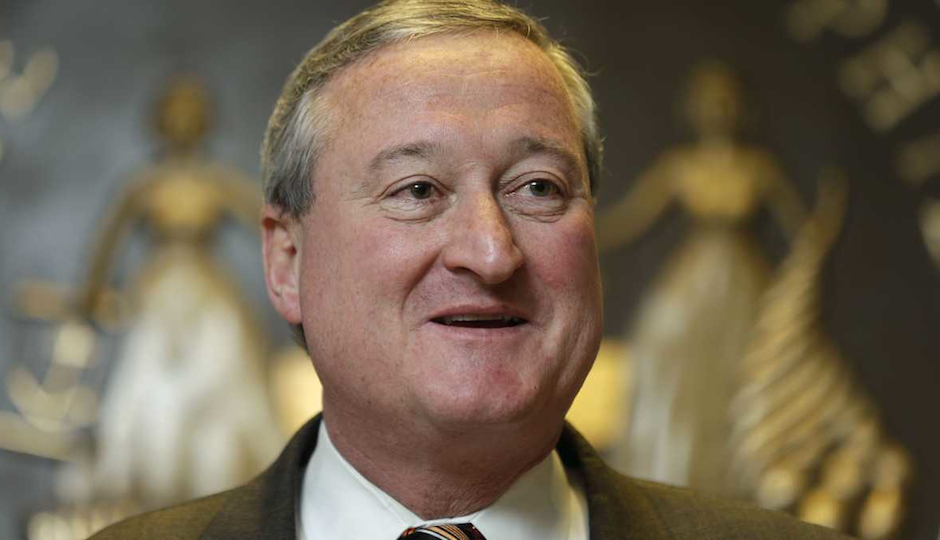Philly Soda Tax Gets Thumbs-Up From Council
A Council panel approved the tax Wednesday, putting Philadelphia on track to become the biggest city in the country with a soda tax.

Photo by Jeff Fusco
Mayor Jim Kenney is now one step away from securing a major first-term victory, after a City Council committee voted Wednesday evening to approve a new tax on sugary drinks and diet sodas in order to fund his priorities: expanded pre-K, community schools, and an overhaul of the city’s parks, libraries and recreation centers.
Legislators must approve the tax for a second time next Thursday in order for it to become law, but it appears that they have reached a final deal. That puts Philadelphia on track to become the biggest city in the country to enact a soda tax.
In a decisive voice vote, the Council Committee of the Whole approved a tax rate of 1.5 cents per ounce, which is half the rate the Kenney administration had asked for. But lawmakers also voted to add diet sodas into the mix, which brings the total projected revenue to $91 million a year, according to the Kenney administration. That is only $4 million less than the $95 million that Kenney had hoped to raise from a proposed 3-cents-per-ounce sugary drinks tax, meaning that there is enough money to fund all his initiatives.
During the hearing Wednesday, finance director Rob Dubow said that some of the tax revenue would also go toward the city’s fund balance. This was news to Council members, and some in City Hall speculated that it would be used for the city’s upcoming contract negotiations with blue-collar municipal union District Council 33. Councilman Bill Greenlee chastised the Kenney administration for bringing this up so late in the game.
“I hope in the future we get full disclosure,” Greenlee said.
“We should have brought it up earlier,” Dubow admitted.
City Council President Darrell Clarke asked Dubow why the city’s message on the fund balance changed so suddenly. “Increased labor costs, pension costs, contracts?” asked Clarke. “Yeah,” said Dubow.
Before Council took its vote, Clarke acknowledged that the budget process had been “rather difficult,” while signaling his support for the bill that lawmakers preliminarily approved.
“The action that we will take will probably leave some people with sour grapes in their mouth,” Clarke said. “But we believe that working with those individuals on a long-term basis, we will insure that this will be a fair and equitable solution as it relates to our ability to do what we can to benefit the citizens of Philadelphia.”
In a statement, Mayor Jim Kenney applauded Council for its vote Wednesday. “While there’s still a week ahead until the final vote, I commend City Council for hosting a meaningful, serious debate and coming to an important compromise that will fund transformative educational and neighborhood programs,” he said. “I encourage all Philadelphians to thank their Council members for standing up to the soda industry before next week’s final vote.”
The No Philly Grocery Tax Coalition, which is funded by the soda-industry lobbying group American Beverage Association, circulated a poll on Tuesday night that showed a growing number of Philadelphians opposed to the sugary drink tax.
“We are disappointed that City Council has chosen to move forward with a discriminatory tax opposed by the majority of Philadelphians,” the group said in a statement after the vote. “This tax will fall hardest on those who can least afford it, hurt small businesses and is an unsustainable way to pay for important programs.”
The soda industry spent nearly $3 million on an ad campaign to kill Kenney’s soda tax. Former Mayor Michael Nutter had twice proposed soda taxes, only to see them be defeated by soda lobbyists both times. And in the eleventh hour Wednesday, word spread around City Hall that Clarke was thinking about attempting to delay the vote due to a technical issue with the bill, which would have given opponents of the soda tax more time to push lawmakers to abandon the proposal.
In recent days, Council had also been considering a wide range of alternatives to Kenney’s proposed soda tax. Councilwoman Blondell Reynolds Brown had advocated for a 15-cent tax on beverage containers. There was even a short-lived, last-minute proposal to raise the property tax rate to pay for the mayor’s budget initiatives, programs which all Council members appeared to support.
In the end, though, a majority of lawmakers backed an amended soda tax, including Clarke, who had called a 3-cent tax “ridiculous” and “divisive,” and signaled support for Reynolds Brown’s alternate proposal instead. The fact that Kenney appears to have pushed a soda tax through Council without much help from Clarke, at least publicly, could have ramifications for years to come.
Follow @JaredBrey and @HollyOtterbein on Twitter.